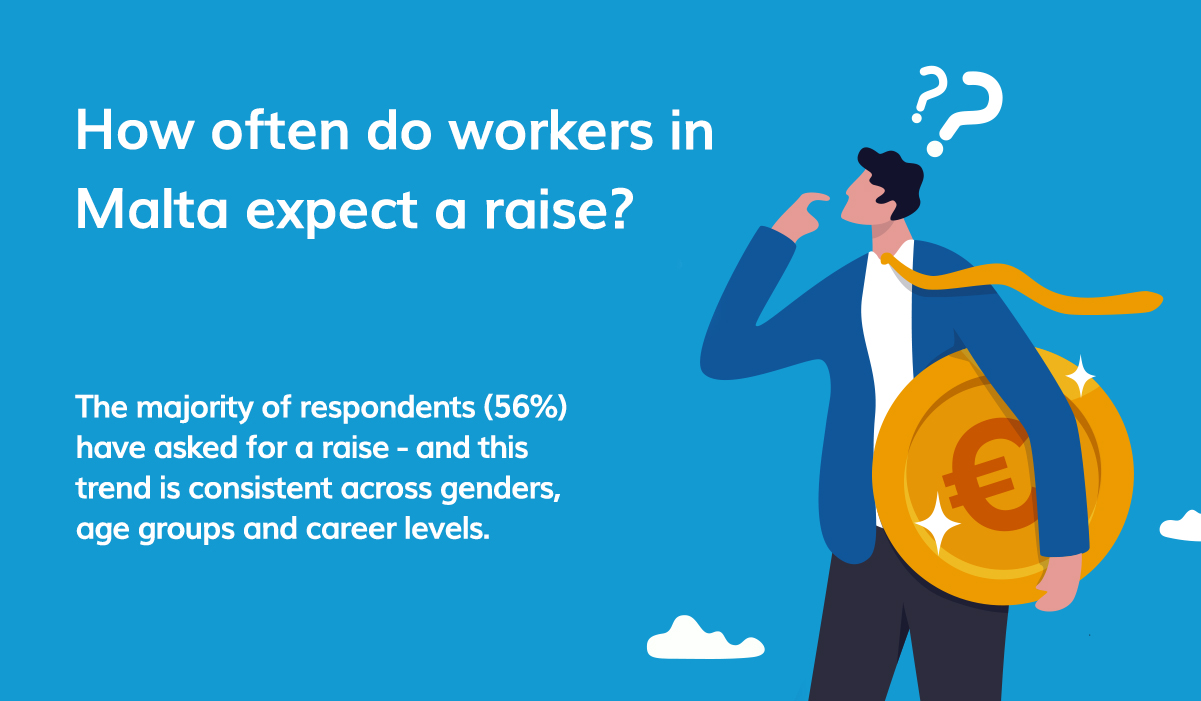How common is it for local workers to ask for a pay raise and how often do they expect a raise? A recent Keepmeposted survey asked workers in Malta.
The majority of respondents (56%) have asked for a raise – and this trend is consistent across genders, age groups and career levels. It seems to be a myth, for example, that women ask for raises less than men (as confirmed by international research too).

Interestingly, however, it is more likely for the younger cohort of respondents to ask for a raise than the older age groups. A slightly higher percentage of younger respondents (64.3%) aged 18-24 said they have asked for a raise.
More than half of all respondents believe that they should receive a pay raise once a year, whilst 13.2% and 12.7% believe they should receive a raise less than once a year or more than once a year, respectively.
The majority of respondents who didn’t ask for a raise, attribute not asking for a raise to not having the confidence to do so. This remains true across genders and throughout different career levels and ages. Unsurprisingly, the higher the career level, the less likely it is for “confidence” to be an obstacle when asking for a raise.
Another cited reason was the belief that asking for a raise was not allowed by the company. This could be because salary raises are already in-built in the system such as through annual reviews.
Despite the admission by most workers that they would not resign if they didn’t get a raise, research shows that salary expectation is cited as a top reason for resignation (Glassdoor, 2018).
One should consider, perhaps, that companies should be more proactive when it comes to raises. This not only avoids employees surprising you with a pay raise request when it is often the least convenient, but it also allows for an open conversation about pay. Pre-planned raises, career development programmes and transparency regarding the pay scale is also another way to go about it. This keeps employees happy and improves employee retention.
Consistent with research done by American firm Payscale, our survey shows that the higher up one is on the ladder, the more likely it is that one gets a raise, when they ask. The majority of respondents still feel, however, that the raise they received was “not good enough”.
What do you make of these findings?

